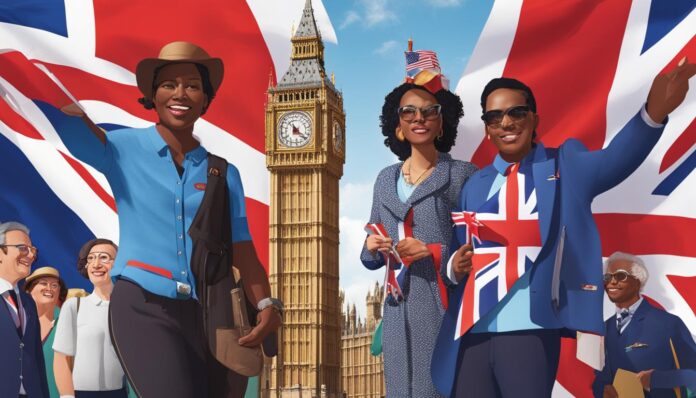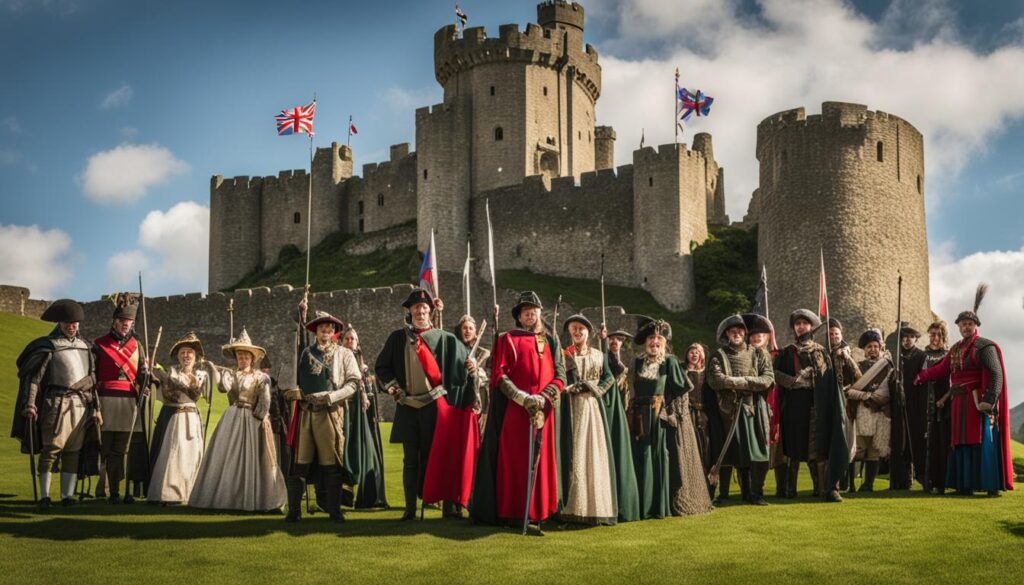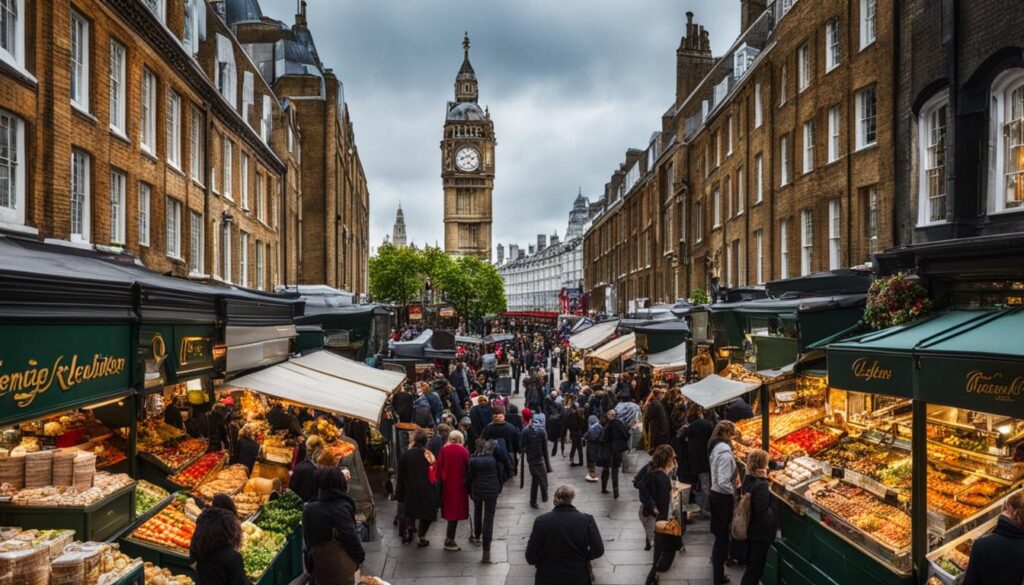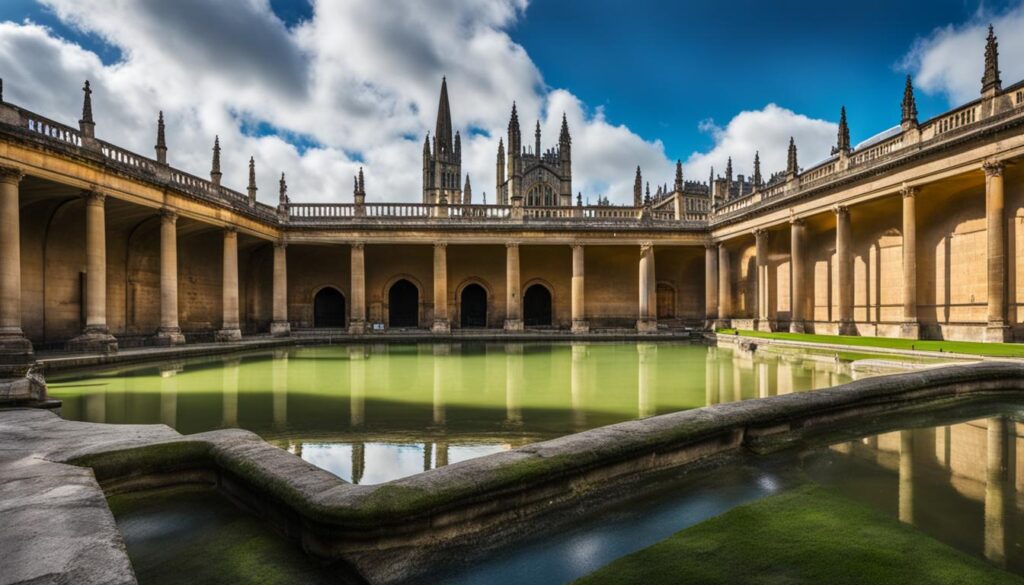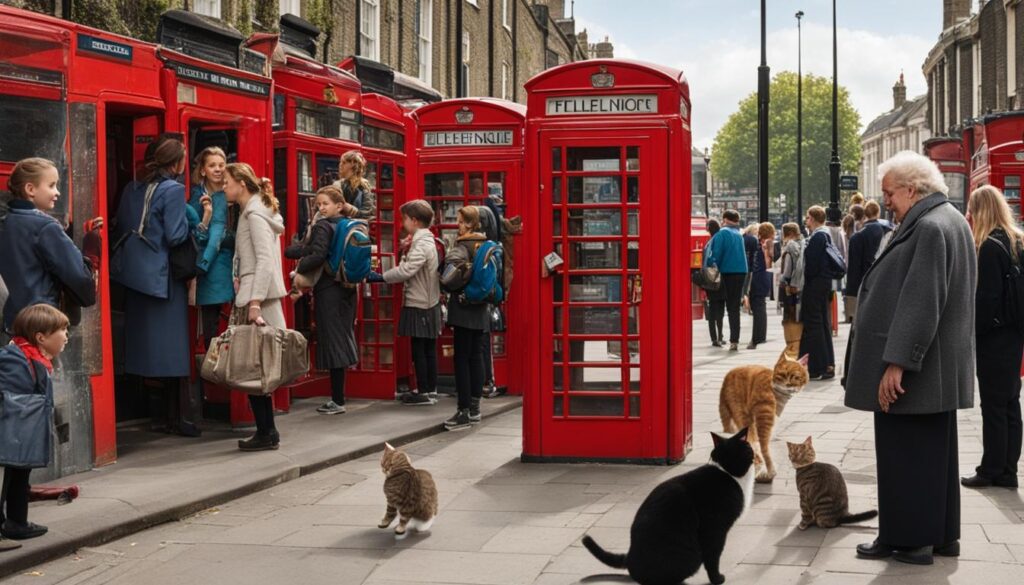Are you fascinated by the rich cultural heritage of Britain? Do you want to learn more about the key moments and events that have shaped British history? Whether you are a newcomer or simply looking to expand your knowledge, this beginner’s guide to British history and culture is the perfect place to start.
Understanding British history and culture is essential to appreciate its contributions to the world. From literature and language to music and politics, Britain’s cultural impact has been felt far and wide. Embark on a journey of exploration and immerse yourself in the captivating world of British history and culture for beginners.
A Brief Introduction to British History
As a beginner exploring British history and culture, it’s essential to understand how key events have shaped Britain’s heritage and society. From the Roman occupation to the Norman Conquest, the Glorious Revolution, and the rise and fall of the British Empire, each era has left its mark on British culture and traditions.
The Roman invasion of Britain in AD 43 marked the beginning of direct Roman rule and lasted until AD 410. The arrival of the Normans in 1066 brought significant changes to British law, language, and culture. The Glorious Revolution of 1688 marked the end of the divine right of kings and the beginning of modern British democracy. The British Empire, at its peak in the 19th and early 20th centuries, shaped the world’s politics, economics, and culture.
British history is rich and diverse, and by exploring its historical periods, you’re sure to gain a deeper understanding of its culture and heritage.
Key Historical Events
Below is a table that provides a brief overview of some key moments in British history:
| Period | Key Events |
|---|---|
| Roman Period | Roman invasion of Britain, Hadrian’s Wall construction, Boudiccan revolt |
| Anglo-Saxon Period | Anglo-Saxon invasions, Christianization of England, Viking attacks |
| Norman Conquest and Medieval Period | William the Conqueror’s invasion, construction of castles and cathedrals, the Magna Carta signing |
| Tudor and Stuart Period | The English Reformation, the Elizabethan era, the Gunpowder Plot |
| Industrial Revolution | Rise of factories and steam power, urbanization, social and political reform movements |
| Victorian Era | Queen Victoria’s reign, advancements in technology and infrastructure, worldwide British Empire expansion |
| World War I and II | Britain’s involvement in two world wars, technological advancements, post-war reforms |
| Modern Britain | Decolonization and the end of the British Empire, cultural and social movements, Brexit |
Use this table as a starting point for exploring British history further. By gaining insight into key historical events, you’ll be able to understand how they’ve impacted British culture today.
Uncovering British Cultural Traditions
When it comes to British culture, there is a lot to explore. From unique customs to iconic events, this section will introduce you to some of the most fascinating traditions that are uniquely British.
Afternoon Tea
A quintessentially British tradition, afternoon tea is a must-try experience. Typically consisting of tea, scones, clotted cream, and jam, afternoon tea is served in elegant settings such as hotels, tearooms, or historic landmarks. It originated in the 19th century as a social event for the wealthy, but today is enjoyed by people of all backgrounds.
Pub Culture
For many Brits, the local pub is a home away from home. Pubs are not just places to drink; they are where people gather to socialize, discuss current events, and watch sporting events. The atmosphere is often relaxed, and people are friendly, making it an excellent opportunity to experience British hospitality.
The Changing of the Guard
The Changing of the Guard is an iconic ceremony that takes place outside Buckingham Palace in London. The guards, dressed in traditional red tunics and bearskin hats, march to military music, accompanied by a troop of soldiers and a band. This event is steeped in tradition and is a must-see for anyone visiting London.
Guy Fawkes Night
Also known as Bonfire Night, this event is celebrated on the 5th of November every year. It commemorates the failed Gunpowder Plot of 1605, in which Guy Fawkes attempted to blow up the Houses of Parliament. Today, people celebrate by lighting bonfires, setting off fireworks, and enjoying traditional food and drink such as toffee apples and mulled wine.
These are just a few examples of the fascinating cultural traditions that make up British society. Embrace them and explore, and you will discover an exciting world of unique customs and practices.
Icons of British History and Culture
Throughout history, numerous influential figures have shaped British culture. Whether through literature, music, or political affairs, these icons have left a lasting impact on Britain’s cultural identity.
One of the most notable figures in British literature is William Shakespeare. He is widely regarded as one of the greatest playwrights in history, penning works such as Romeo and Juliet and Hamlet that continue to captivate audiences today.
Queen Victoria, the longest-reigning monarch in British history, is another noteworthy personality that left a significant mark on British culture. Her reign saw the expansion of the British Empire, and her influence on fashion and societal norms of the time is still evident today.
Winston Churchill, widely considered one of the greatest leaders in British history, played a pivotal role in the country’s victory during World War II. His speeches and leadership inspired the nation during a time of great peril.
“Success is not final, failure is not fatal: it is the courage to continue that counts.” – Winston Churchill
In the world of music, The Beatles are an iconic representation of British culture. Their unique sound and style revolutionized the music industry and still inspire new artists to this day.
Famous British Icons
| Name | Field | Significance |
|---|---|---|
| William Shakespeare | Literature | Considered one of the greatest playwrights in history, his works remain enduring classics and have been translated and performed all over the world. |
| Queen Victoria | Royalty/Politics | The longest-reigning monarch in British history, her influence on fashion, societal norms, and the expansion of the British Empire is still evident today. |
| Winston Churchill | Politics | Considered one of the greatest leaders in British history, his speeches and leadership inspired the nation during World War II and beyond. |
| The Beatles | Music | Their unique sound and style revolutionized the music industry and continue to inspire new artists. |
These are just a few of the many significant figures that have left an indelible mark on British history and culture. Exploring their legacy can give us a deeper appreciation for the rich heritage that defines British society.
Exploring British Heritage Sites
Discover the rich history of Britain by visiting some of its most famous and beloved cultural landmarks. With a history dating back thousands of years, Britain is home to a myriad of historical sites that offer a glimpse into the country’s past. Here are a few of the must-see heritage sites for beginners:
| Heritage Site | Description |
|---|---|
| Stonehenge | A prehistoric wonder, this mysterious ring of standing stones located in Wiltshire is thought to have been built around 3000 BC. |
| Tower of London | A UNESCO World Heritage site, the Tower of London has played a significant role in British history, serving as a palace, prison, and royal palace. |
| Edinburgh Castle | Perched atop an extinct volcano, this stunning Scottish fortress has witnessed over 1,000 years of history and has been home to royalty, military, and the Scottish crown jewels. |
| Roman Baths | This ancient Roman bathing complex in Bath is an impressive feat of engineering and provides valuable insights into ancient Roman culture. |
These are just a few of the many heritage sites that reflect the rich history and culture of Britain. By visiting these iconic landmarks, you can gain a deeper understanding of the country’s past and its enduring influence on the world today.
British Society and Customs
As you explore British history and culture, it’s essential to understand the societal norms and customs that shape British life.
One of the defining features of British culture is politeness. It’s commonplace to say “please” and “thank you” when making requests or receiving assistance. Queueing is also a crucial aspect of British life. Whether waiting in line for the bus or queuing at a checkout, Brits take their turn in an orderly fashion without cutting in line.
British humor is another defining characteristic of the culture. It’s a mixture of wit, irony, and sarcasm and can be seen everywhere from British television shows to everyday conversations. The art of small talk is also significant in British culture. It’s an informal way to get to know someone and can be on anything from the weather to a shared hobby.
Understanding the customs and traditions of British society can help you communicate more effectively and integrate more smoothly into daily life wherever you go in Britain.
Genius of British Humor
| Comedian | Quote |
|---|---|
| John Cleese | “I’m not a looney! Why should I be tarred with the epithet?” |
| Ricky Gervais | “A problem with a piece of cake is this – it’s gone and you want more cake, which is different to the problem you had before you ate cake, which was that you didn’t have any cake.” |
| Rowan Atkinson | “To be an actor, one must have a morbidly frail ego.” |
British Royalty and Monarchy
One of the most significant elements of British history and culture is undoubtedly the monarchy. With a history that spans more than a thousand years, the British royal family has become an intricate part of British society and culture. The current reigning monarch is Queen Elizabeth II, who has been on the throne since 1952 and is the longest-reigning monarch in British history.
The British monarchy has a rich history, and its traditions and significance are still felt today. One of the most notable traditions is the coronation of a new monarch, which is a grand ceremony that takes place at Westminster Abbey in London. The ceremony involves various rituals and customs that have been passed down through the ages, such as the anointing of the monarch with holy oil and the crowning with the St Edward’s Crown.
The crown jewels are another iconic aspect of the British monarchy, with pieces like the Imperial State Crown and the Sovereign’s Sceptre with Cross being some of the most significant artifacts. The jewels are kept at the Tower of London and can be viewed by the public. They are used in ceremonies such as the State Opening of Parliament and the coronation of a new monarch.
The British monarchy also plays a role in British society, with the monarch representing the country on a national and international level. While the monarch’s role is mostly symbolic, they do have some formal powers, such as the ability to appoint the Prime Minister and grant Royal Assent to legislation.
The Royal Family Tree
| Monarch | Reign |
|---|---|
| William I (The Conqueror) | 1066-1087 |
| Elizabeth II | 1952-present |
| William IV | 1830-1837 |
| Victoria | 1837-1901 |
| Edward VII | 1901-1910 |
| George V | 1910-1936 |
| Edward VIII | 1936 |
| George VI | 1936-1952 |
From William I, who became king in 1066 after the Norman Conquest, to the current monarch, Queen Elizabeth II, the British monarchy has played an integral role in shaping British history and culture. Understanding the traditions and significance of the monarchy helps us to appreciate the rich heritage and unique societal norms that make up Britain’s history and culture.
Impact of British History on the World
British history has had a profound impact on the world we live in today. The influence of the English language, for example, cannot be underestimated. It is the third most widely spoken language in the world, used by over 1.5 billion people as either a first or second language. The spread of English began with the rise of the British Empire in the 16th century and continues to this day, with English serving as the global language of business and diplomacy.
British literature has also left an indelible mark on world culture, with the works of William Shakespeare, Jane Austen, and Charles Dickens enjoying global acclaim and serving as the basis for countless plays, films, and television shows. The Harry Potter series, written by British author J.K. Rowling, has sold over 500 million copies worldwide and has been translated into 80 languages.
The legacy of British colonialism, however, is a complex and often contentious subject. While the British Empire brought about significant developments in transportation, communication, and education, it also led to the exploitation and subjugation of peoples and cultures around the world. The effects of colonialism are still felt in many parts of the world today, with ongoing political and economic struggles in various regions.
Despite its flaws and controversies, the influence of British history and culture on the world remains undeniable. From its impact on language and literature to its role in shaping colonialism and global politics, the story of Britain has played a significant part in shaping the modern world.
Conclusion
Congratulations on completing this beginner’s guide to British history and culture! You now have a solid understanding of the key events, traditions, figures, heritage sites, societal norms, and global impact of British history and culture.
As you continue to explore the captivating world of British heritage, remember to immerse yourself in the country’s diverse customs, traditions, and landmarks. Whether you visit Stonehenge, enjoy a cup of tea, or watch the Changing of the Guard, there is always more to discover about Britain and its rich history.
Thank you for joining us on this journey of exploration. We look forward to hearing about your experiences and discoveries as you delve deeper into the fascinating world of British history and culture.




























